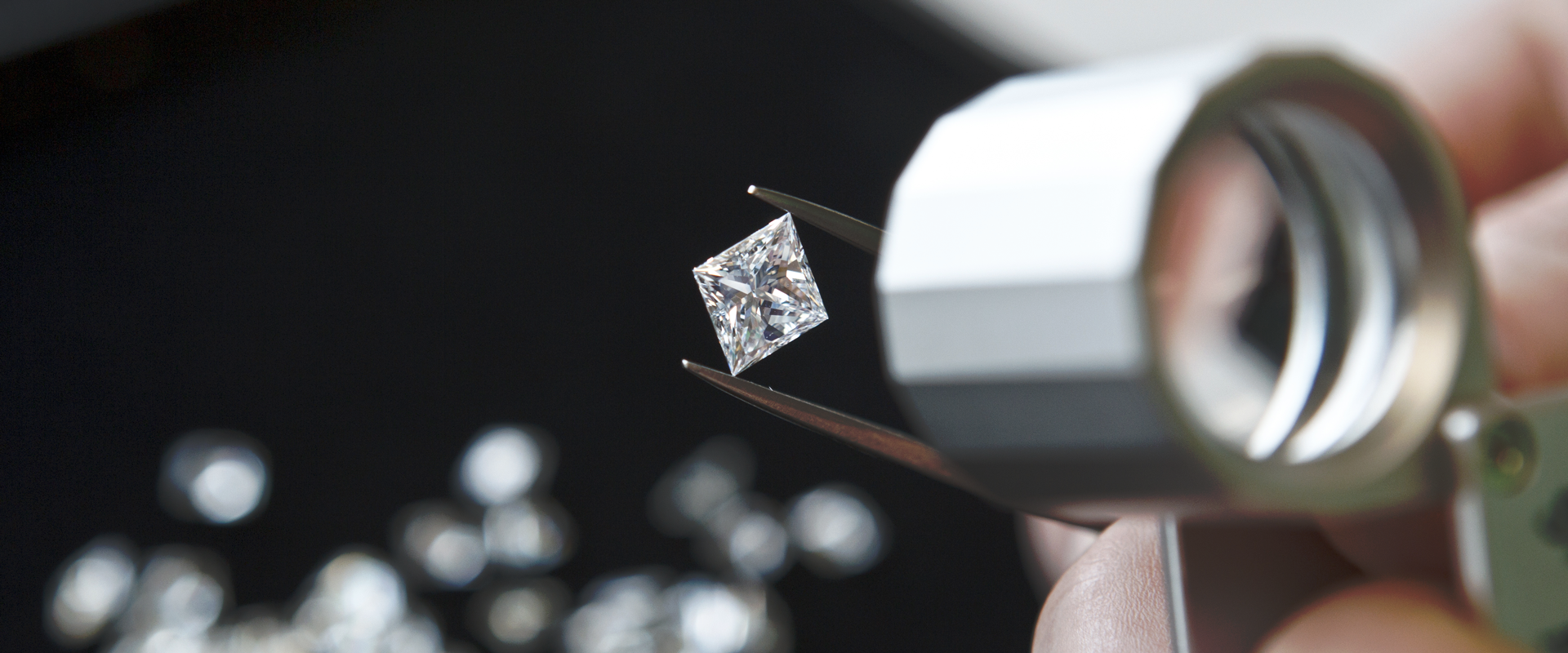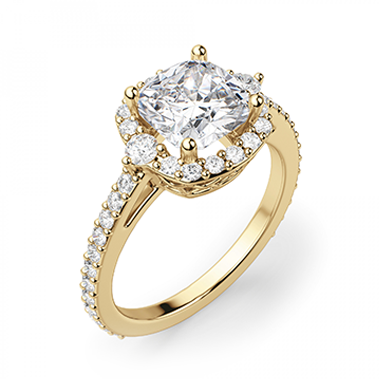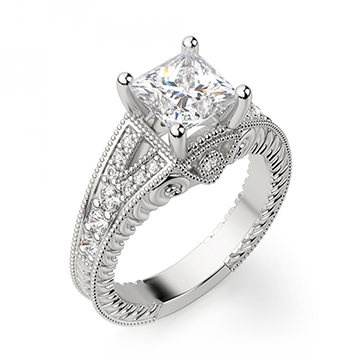How Does Jewelry Insurance Work?
Who doesn’t like buying jewelry? Be it a pearl necklace or a diamond ring; jewelry can make anyone happy. But these prized possessions in our homes are sometimes the most unprotected.
A jewelry insurance policy provides extensive coverage on situations like damage, unexplained disappearance, theft, or loss of your jewelry. The policy can cover the full or partial cost of the jewelry.
To get jewelry insurance, determine what your existing insurance, such as homeowner or rental policy, covers. Get an appraisal and diamond grading report to evaluate the total value of your jewelry. Then, research and compare jewelry policies, decide if you want a deductible, and pick the plan that works for you.
The total cost you have to pay for insurance depends on how often you wear the jewelry, where you reside, and other deductibles. Typically, you will have to pay 1% – 2% of the total value of your jewelry annually.
Most people wonder if they need jewelry insurance if they already have a home insurance policy. The answer is yes. Homeowners’ insurance only covers limited situations such as theft, explosions, smoke damage, and civil disturbances.
For instance, if your home is burglarized and your necklace is stolen, the home insurance policy will cover its cost.
However, if the ring slips off your finger while traveling or you misplace it accidentally, you will need exclusive jewelry insurance to cover the cost.
The following guide explains what jewelry insurance is all about and how you can avail of it in great detail. After all, a prized possession like a diamond ring deserves utmost protection.
Let’s get started.
These are the steps to get your jewelry insurance.
1. Go over your existing insurance to see what it covers
If you have homeowners or renters insurance, it must have some coverage for jewelry. Check with your insurer to determine what coverage is offered for jewelry under the insurance policy.
Homeowner or renters insurance policies compensate the price of the jewelry in limited situations only. For instance, homeowner policies cover jewelry’s cost if it’s damaged or lost because of:
- Explosion
- Burglary
- Vandalism
- Riot
- Water damage
- Pipe freezing
- Electrical current.
- Accidental cracking or tearing
- Weight of snow and ice
- Volcanic eruptions
- Damage by aircraft
- Falling objects
- Fire and lightning
- Windstorms and hail
- Damage by vehicle
However, if you accidentally lose your ring while traveling or go into the drain when cleaning the dishes, the homeowner or renter policy will not cover the cost.
Therefore, it is important to know what your existing insurance covers and what your jewelry insurance policy should cover.
Tips for finding out what your insurance covers
Have a meeting with your insurance provider and ask them to go over the policy clauses once again. Make sure you also ask the situations in which losses are covered. Many policies only cover costs in case of a fire or theft but not accidental losses.
Note all the situations when insurance will not be provided via homeowners’ or renters’ policy.
You can then search for jewelry insurance policies that will cover these instances and provide utmost protection to your prized possessions.
2. Get an appraisal for your jewelry
It’s important to know your jewelry’s worth to cover it’s full value.
An appraisal outlines all the jewelry’s key elements that contribute to its value, and you can get it from your jeweler. It describes the value of the jewelry in terms of clarity, the number of diamonds, shape, types of metal, color, weight, cut off the metal, shape, and weight of other stones, stamps, model numbers, and any unique markings.
With an appraisal, you can then evaluate the total value that your insurance should cover.
It can also include the origin of the materials, the specific type of craftsmanship involved, and the retail prices in the market at the time.
Accordingly, the appraisal is one of the key documents for you to get accurate insurance.
Tips for getting an appraisal
The easiest and most efficient way to get an appraisal is to request the jeweler for it when purchasing the jewelry. Also, make sure your appraiser has all the right credentials.
Many insurance companies require an appraisal for expensive pieces such as an engagement ring or a diamond necklace.
Therefore, they will request an appraisal, which you will have to get from the jeweler.
For less expensive items, a receipt or invoice is sufficient. By getting an appraisal at the time of purchasing the jeweler, you will be saved from a lot of hassle.
The jeweler will also be able to showcase the existing marking prices and their distinct characteristics more accurately.
It is important to find a trustworthy and reputable appraiser. An ideal appraiser should hold a degree in gemology and be a member of any appraisal society that runs nationally.
In this way, you will avoid appraising an incorrect value for your jewelry, preventing you from getting the right insurance policy.
A trustworthy appraiser will ensure that the appraisal is not inflated but accurate, as you can lose money in the long run. On Jewelers Connect, you will find trusted appraisers for your jewelry.
Remember, if you upgrade your ring, you will have to get it appraised again so that the insurance policy can compensate for its existing value.
3. Get a grading report or diamond certificate
If the center stone in your jewelry is about half a carat or larger than it, you can get a diamond certificate or a grading report. It assesses the quality of the diamond in particular and also appraises its value.
The grading report evaluates the diamond in terms of cut, clarity, color, and carat weight. Many insurance agencies also require this certificate to assess the overall value of the jewelry.
This detailed information can also help in tracking down the diamond if it is ever lost or stolen.
Therefore, even if you are not opting for insurance on a specific piece of jewelry, it is still imperative to get a diamond certificate or grading report.
Tips on how to get a grading report
Request your jeweler to provide you with the grading report or diamond certificate. The report should be approved by a gemological laboratory such as the Gemological Institute of America (GIA).
5. Research and compare jewelry insurance policies
Start searching for jewelry insurance policies online, or ask your insurer to recommend you a policy.
Your jeweler can also recommend a good insurance policy. Choose a policy that covers the specific coverage you need.
When it comes to selecting an insurance policy, there are two options you can look into:
- Add a floater policy to the existing homeowner or renter insurance. When you purchase this additional coverage, your jewelry is protected under full insurance without any deductibles.
It can also expand the situations under which the insurance will be liable, such as mysterious losses.
- Purchase an independent insurance policy. It will be a separate policy from existing ones, such as the homeowner or renter policy.
The option you choose depends upon your feasibility and preferences. Many people choose the floater policy to avoid extra hassle.
However, it is important to remember that any claim made for jewelry against your homeowner’s policy can influence the entire policy.
In other words, the clauses of the policy can become confusing. On the other hand, if you get an independent policy, you can protect your jewelry in an extensive number of situations.
Homeowner insurance policies provide limited coverage even after extensions as per coverage value limits, type of jewelry, and situations covered.
Tips on choosing the right policy
When selecting a policy, check all the facts and information to ensure you make the right decision.
Here are some questions that you can ask to choose the right jewelry policy:
- Do you provide coverage if the jewelry is stolen?
- Is the jewelry covered if I lose it accidentally?
- Is it covered for all kinds of damage?
- What if a diamond or other stone falls out of the ring?
- What kind of incidents are not included in the coverage?
- Is the insurance local only, or is it liable while traveling internationally as well?
- If the jewelry piece needs to be replaced, will the insurance cover the cost?
- Can I choose the jeweler who replaces or repairs the ring?
- What evidence do I need when filing a claim?
- What will happen if a suitable replacement for the ring is not found?
- Will the policy adjust as per inflation?
- If replacement is covered under the insurance, where can I buy the new jewelry piece?
- What repairs will constitute the deductibles?
- File a jewelry insurance claim
Consider the pros and cons of extending your existing policies and consider all the details of the coverage.
Most importantly, ask the right questions from your insurance provider.
It is also a good practice to take help from an expert when choosing a policy. It can be quite overwhelming to read tons of information, consider legal requirements, and decide.
Jewelers Connect helps you choose the right policy for your jewelry. You can talk to a member at Jewelers Connect and get specialized help.
You should never assume any information about the insurance policy. Instead, you should do your research and inquire about details from your insurance provider.
If the jewelry is stolen, lost, or damaged, submit a claim online to your insurer or make a call. If your jewelry is particularly stolen, make sure to report it to the police. The insurer will then guide you on what to do next.
Many insurers will file the claim and ask you to select your jeweler to replace or repair your item.
The insurance companies will require various estimates from the jewelers when covering the replacement or repair costs.
You should approve all the replacements or repairs before the completion of the work.
Once you are satisfied with the replaced or repaired item, the insurer will cover the costs liable for them. You will have to cover any deductibles as mentioned in the policy.
5. Choose an insurance deductible
A deductible is an amount you are willing to cover if your jewelry is lost, stolen, or damaged. Consider your budget when choosing a deductible.
Many insurance policies require the customers to choose a deductible. This is important when filing a claim.
If you lose a ring, for example, and your insurer is getting it replaced, you will have to choose a jeweler and decide the ring you want.
In some cases, you might choose a ring of greater value than the ring you have lost. This is where deductibles come in handy. Deductibles show up to what amount you are willing to pay.
Tips for choosing an insurance deductible
Think of your budget when choosing a deductible and how well you can adjust it in case of unexpected expenses. Consider the cost-saving as well when selecting it.
A deductible is only applicable in expected situations such as theft. Therefore, it is important to consider if you will cover up the extra costs at an unexpected time.
Another way to choose a deductible is to compare the cost savings. If you are saving a lot by choosing a higher deductible, it might be worth a shot.
But if the cost savings are not sufficient, then you can leave out the deductible from your insurance policy.
Tips for filing a jewelry insurance claim
Make sure to collect as much evidence as possible before filing a jewelry insurance claim, for instance, by reporting to the police. This will strengthen your case.
Conclusion
Jewelry is one of the most valuable possessions you can own. But unexpected situations can arise at any time. Therefore, it is important to protect your jewelry under the right insurance policy.
For insuring your jewelry, check your existing insurance policies first, such as homeowner or rental policy. Determine if the existing policies already cover your jewelry or you need an additional policy.
Make sure to get an appraisal and diamond grading report. These documents will help evaluate the total value of your jewelry.
Research and compare different insurance policies as per your needs. You can either extend your existing policies to cover the jewelry or buy a standalone jewelry insurance policy. Also, decide if you want a deductible to be included in the policy.
Finally, you can file a claim if your jewelry is stolen, damaged, or lost. Filing a claim is a relatively straightforward process.
However, if you are still confused about the entire process and don’t know which policy to choose, Jewelers Connect can help.
At Jewelers Connect, you can get connected with an insurance expert who will help you find the right insurance policy, decide if you need a deductible, and learn how to file a claim.
Working with Jewelers Connect will save you a lot of hassle. So what are you waiting for? If you have prized jewelry, it is time to get it insured. Get in touch with an expert at Jewelers Connect today and learn more about the process.


